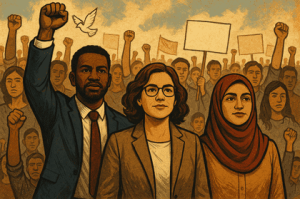Those who opt to stand alone are sometimes regarded as political martyrs in a scene shaped by alliances, party devotion, and secret agendas. “Suicides No Ties” catches the rising phenomena of people in politics and government who reject to be constrained by conventional relationships. Although their independence might cost them support, influence, or even their jobs, it usually represents a greater dedication to honesty, truth, and real public service.
The Price of Dissension
The Perils of Party Politics
Political parties provide support and organization, but they can sometimes demand unquestioning allegiance. Party members of public officials are under pressure to follow the rules—even if they contradict their values or the general welfare. Rarely accepted is dissent; individuals who question the system from within run the danger of being replaced or excluded.
The Autonomous Route
Choosing to stay unaffiliated—or operate independently inside a party—usually results in political isolation. Sometimes called “political suicides,” these people give their job security up for integrity and reform. Their independence, however, enables individuals to express freely, expose corruption, and suggest ideas free from party goals.

Strength Without a Banner
Unaffiliated Leadership: Several Examples
Independent leaders and reformers have demonstrated worldwide that actual change does not necessarily originate from the mainstream. People who question their governments, turn down bribes, or reject political influence sometimes launch movements or inspire public confidence. Their legacy resides in changing public opinion even if they do not always win elections or occupy headlines.
Effect on the People
Politicians without “ties” appeal to those who feel underrepresented by big parties at a period of growing mistrust in government. These leaders are evidence that one can enter politics for a reason rather than for glory.
Overall Idea
“Suicides No Ties” is a monument of bravery rather than a call to self-destruction. It stands for people who put values above politics and jeopardize their professions. Although their road is sometimes challenging, their behavior exposes a developing taste for politics grounded in truth instead than tribalism. Ultimately, these leaders wear something far more potent—the trust of people longing for change—than they wear party colors.
